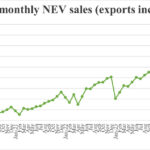The recent data breach at Volkswagen Group has sent shockwaves through the automotive industry, exposing the personal information of 800,000 electric vehicle owners. This breach, originating from a security flaw within VW’s software subsidiary, Cariad, has raised concerns about the privacy risks associated with data collection practices in the automotive sector.
The compromised data included sensitive details like names, addresses, phone numbers, and precise location data. Shockingly, over 460,000 vehicles had their GPS coordinates exposed, with some locations pinpointed with an accuracy of 10 centimeters. The breach was detected by the German hacker group Chaos Computer Club (CCC), who promptly alerted Volkswagen before any malicious exploitation could occur. The vulnerability was attributed to a misconfiguration in VW’s Amazon Web Services (AWS) environment, where the personal and location data of vehicle owners were left publicly accessible for months.
The implications of this data leak are far-reaching, particularly for high-profile individuals like politicians and law enforcement officers whose information was compromised. This highlights the potential dangers faced by individuals in positions of authority due to such breaches. While Volkswagen has since addressed the issue and claimed no evidence of malicious access, experts remain critical of the extensive personal data collected by the automaker and the broader industry.
The breach has reignited the debate around the excessive data collection practices in the automotive sector. Critics argue that the level of detail gathered by car manufacturers, such as continuous tracking of vehicle location, battery status, and driving behaviors, exceeds what is necessary for vehicle performance and safety. Security experts caution that such extensive data collection poses significant privacy risks, especially when stored without adequate safeguards.
In Volkswagen’s case, the exposure of location data linked to specific vehicles raises concerns about potential misuse, including targeted extortion or cyberattacks. With half a million vehicles’ movements laid bare, the threat of personal harm escalates as attackers could exploit this information to target individuals or launch phishing schemes.
The issue of excessive personal data collection in the automotive industry is not new. Mozilla’s Privacy Not Included guide, released in September 2023, highlighted the failure of 25 major car brands, including Volkswagen, to meet basic privacy standards. Many car manufacturers were found to collect highly sensitive data, such as health information, sexual activity, and facial expressions, raising serious concerns about consumer consent and data misuse.
The growing concerns surrounding car data collection underscore the need for stricter regulations on data privacy in the automotive sector. As connected vehicles become more prevalent, companies must prioritize robust privacy protections to safeguard personal data from breaches and abuse. The Volkswagen data breach serves as a stark reminder of the delicate balance between innovation and privacy, urging the automotive industry to address the risks associated with increasing connectivity.
In light of these developments, it is imperative for the automotive sector to proactively implement stronger security protocols and adhere to data privacy regulations like the European Union’s General Data Protection Regulation (GDPR). As the industry continues to embrace connectivity, prioritizing consumer privacy will be crucial in mitigating the risks posed by data breaches and misuse. Volkswagen’s breach serves as a cautionary tale, prompting automakers to navigate the evolving landscape of data privacy with diligence and responsibility.







